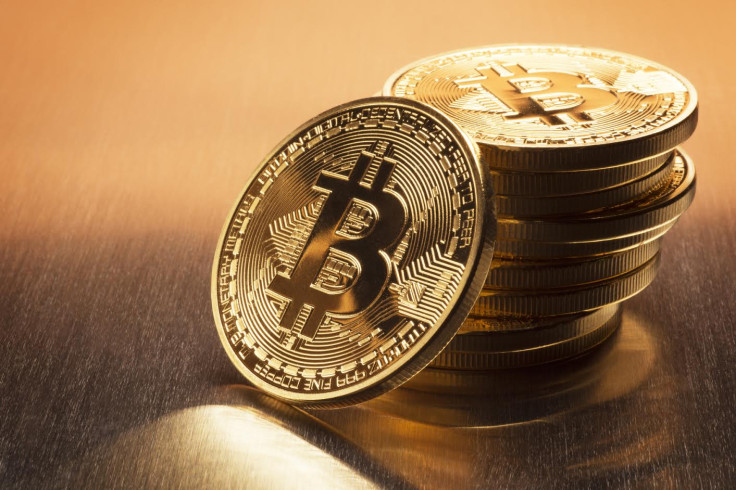What is Bitcoin and should I invest? Everything you need to know but were too scared to ask
Digital currency is unpredictable but remains an ''enticing investment'' for some.
If you're in any way interested in financial technology you will have heard of Bitcoin, arguably the world's most popular form of cryptocurrency. Many believe this digital money – and the blockchain foundation it's built upon – will drag traditional banking into an exciting new era.
The tech-savvy industry is attracting investment around the globe, with many hoping that Bitcoin (or other cryptocurrency such as Ethereum) will pay off down the line. But for many, terms like Bitcoin, blockchain and fintech still mean little, so IBTimes UK asked some experts to define them.
"Bitcoin is a form of digital currency, created and held electronically," explained Dr Catherine Mulligan, co-director of the Imperial College Centre for Cryptocurrency Research and Engineering.
"Rather than rely on intermediaries – i.e. banks – as we have until now bitcoin uses a decentralised peer-to-peer network that has no central authority," Mulligan continued. "Instead, every transaction is recorded by every node on the network, allowing anyone to verify that a transaction is valid."
If you are used to traditional banking the very idea of no central authority may seem alien – but that's kind of the point, as Guy Halford-Thompson, chief executive and co-founder of BTL Group, a firm selling fintech products to the finance, energy and gaming sectors, explained.

"Bitcoin is by its nature a decentralised form of currency as there's no central bank that controls its supply. Instead it is 'mined' by computer programmers and stored in a public ledger. These miners will eventually mine the finite supply of programmable Bitcoins, which is 21 million.
"Due to its decentralised nature and the fact that it is built on blockchain technology, it is considered a very secure way to store and transfer value. It's so secure that if you own Bitcoin and lose your unique digital code it's the equivalent of losing your wallet full of cash and never seeing it again."
There's the blockchain word again, so let's define that.
Essentially, as Mulligan explained, the blockchain – often referred to simultaneously as Distributed Ledger Technology (DLT) – allows "untrusting parties with common interests to co-create a permanent, unchangeable and transparent record of exchange."
She continued: "A blockchain creates a public record of all transactions stored across a distributed peer-to-peer network of servers. Verified transactions are add to 'blocks' and the history provides proof of value of assets 'owned'. A key attribute is the fact that it is resistant to modification.
"Once a transaction has been stored in a block, it is infeasible to alter it retroactively. While the most commonly known application is bitcoin, blockchains can in fact be used in a broad variety of use cases across society and industries. Examples include security and smart cities."
What on earth is fintech?
These terms are not yet in the public lexicon, but for those in the financial technology, or fintech, sector cryptocurrency is well-established – and exciting. There are downsides (volatility, for example) yet many mainstream banks are currently probing its potential adoption.

"Fintech is already shaking up the traditional financial system and will continue to do so in the near future," Mulligan said, adding: "Many central banks are actually investigating the use of cryptocurrency technologies to support fiat currencies. However, this still in the research phase."
Halford-Thompson elaborated. "The word fintech is arguably being misused in many instances where established financial businesses are attempting to jump on bandwagon by calling the service that they provide fintech," he said. "It is used as a very generic term now, rather like 'hedge fund'.
"Firms that can lay claim to referring to themselves as fintech will usually have similar attributes, for example being less than five years old, pre-revenue and profit, but primarily providing a financial service that would normally have been done so by one of the more established banks."

So, the technology is there in its early stages, but should you be investing early?
To find out, IBTimes UK contacted one keen adopter – a self-described "life hacker" - who is relatively new to the game, but believes the currency is "an enticing investment" to make.
"I bought my first Bitcoin in June 2016," our contact, 28-year-old business owner Neal McParland, explained.
"There were a number of factors that led me to believe it would provide a strong return over the coming of years," he continued.
"First, its price has grown astronomically since its inception to the point where in March 2017 one Bitcoin surpassed the price of an ounce of gold. Next, there is a finite amount of Bitcoins that will ever become available and this scarcity factor has a key part to play in the rising value of a Bitcoin.
"Last, the uncertainty in the value of the world's fiat currencies during 2016 meant people started looking to alternatives such as Bitcoin as a hedge against the value of their country's own currency."
However, he warned that investing in the currency is not for the faint of heart.
"We are still in the early adoption phase and as such any negative news regarding the world's leading cryptocurrency has a wild impact on its value," he noted.
Still, the future remains promising. He said: "Personally, I have invested in this fascinating piece of technology for the long haul due the strong fundamental factors behind it which mean that, although it is currently a high risk investment, it has major upside potential."
© Copyright IBTimes 2025. All rights reserved.






















